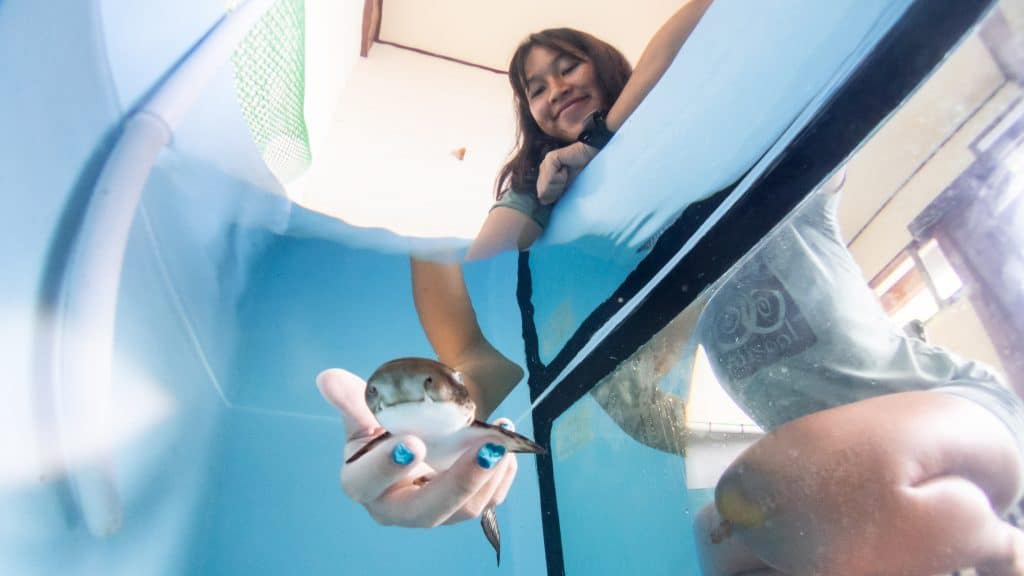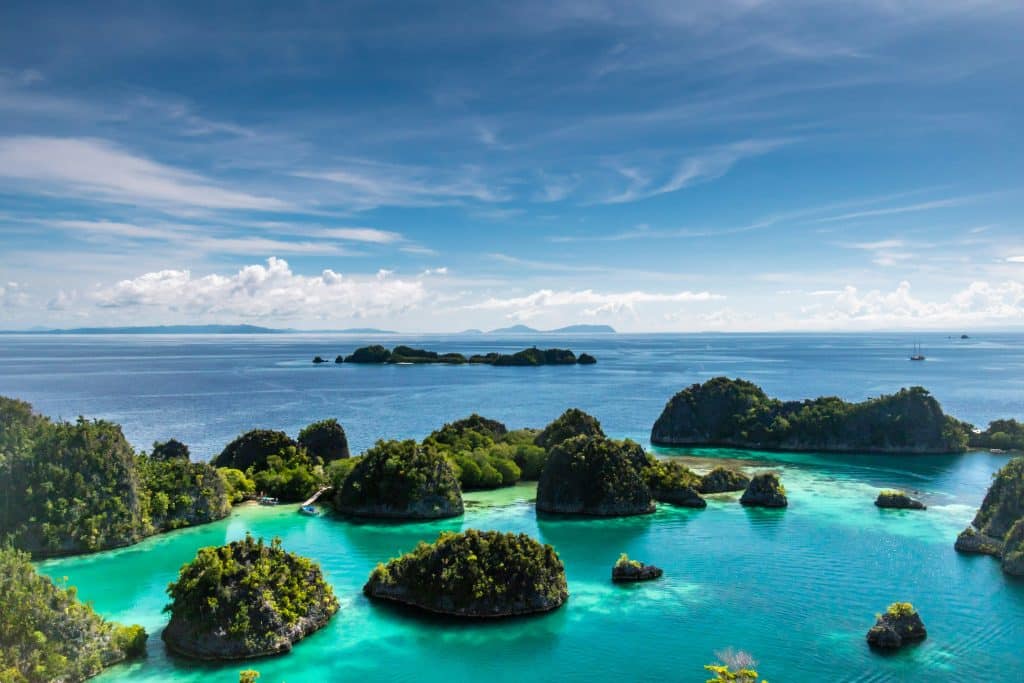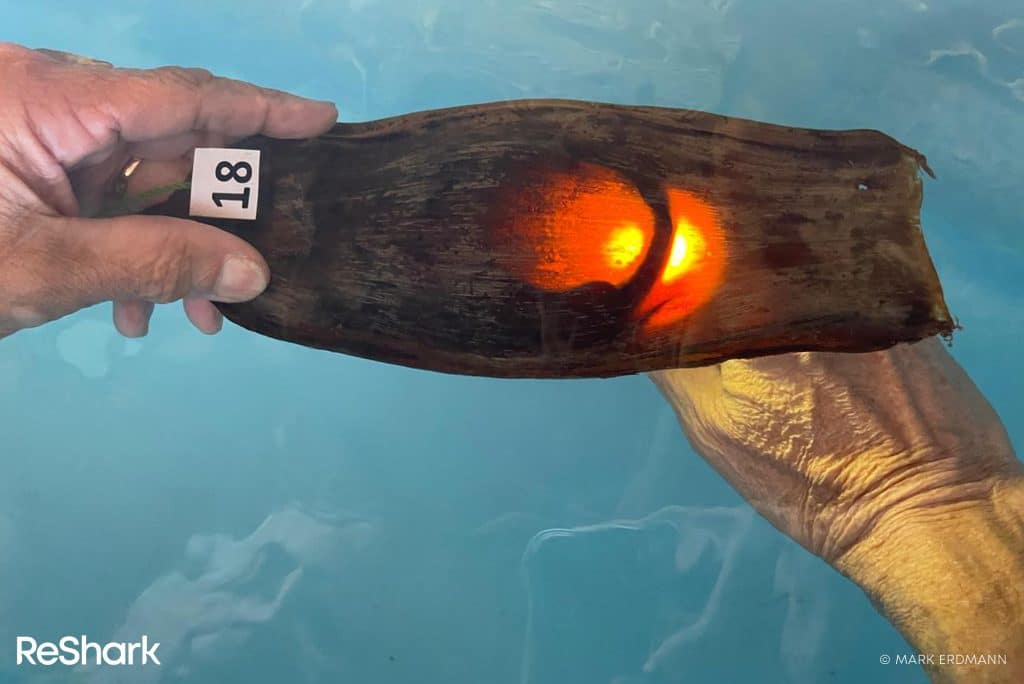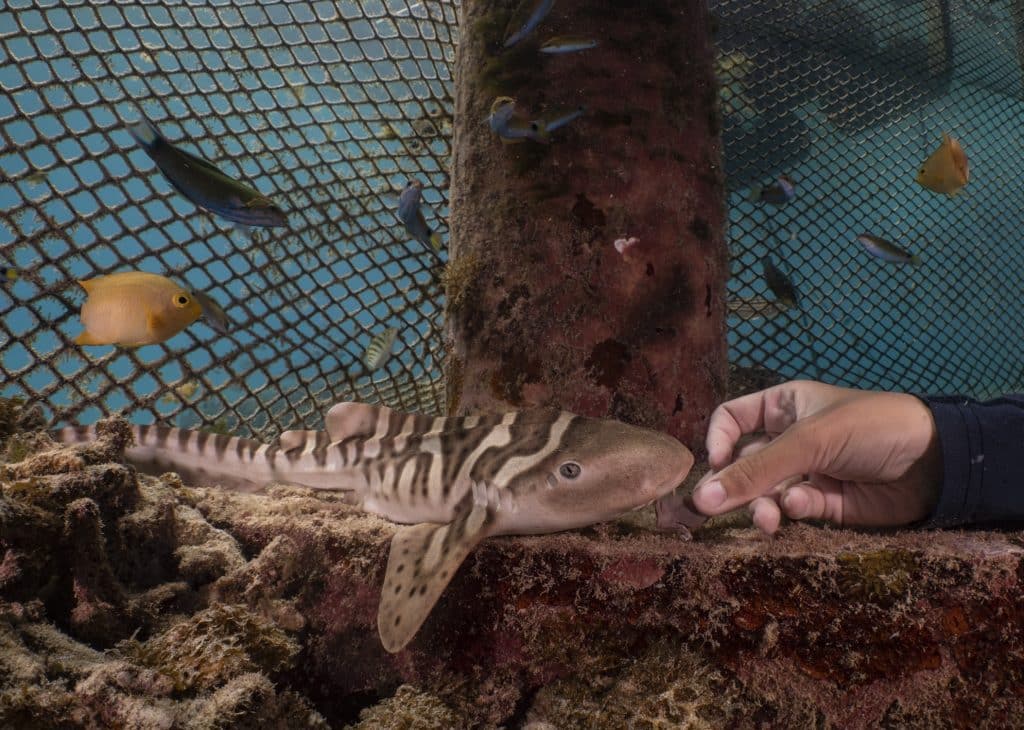Kyra Bestari leaned over the tank rim while clutching the sea snail. Dipping her hand beneath the water’s surface, she extended the offering toward the small shark pup slowly approaching. Gently, it snatched the snail and darted in a blur into a deeper corner of the tank. As a “shark nanny,” Kyra feeds and cares for Indo-Pacific leopard shark pups for Misool Foundation, a new WCN Conservation Partner. Misool Foundation manages a nursery for these sharks, which are part of a first-of-its-kind reintroduction project led by ReShark that will restore the species to one of its historic marine ecosystems in Indonesia’s Raja Ampat archipelago.
ReShark is an international collective of over 90 conservation organizations, government agencies, and aquariums dedicated to reintroducing endangered sharks to the wild. Indo-Pacific leopard sharks are functionally extinct in Raja Ampat due to years of intensive shark finning. However, Misool Foundation has spent over a decade contributing to the creation of a network of marine protected areas in the archipelago, including Misool Marine Reserve and the Raja Ampat Shark and Ray Sanctuary. They have also helped protect the archipelago’s colorful coral reef ecosystems, work that is now dovetailing into the rewilding of larger species, like leopard sharks, which couldn’t return here without this reintroduction project.
With shark finning now eliminated in the region, Raja Ampat is the perfect location to reintroduce the sharks. It begins in ReShark’s partner aquariums, where eggs are collected from captive leopard sharks that are genetically compatible with the Indonesian subpopulation. These eggs are carefully transported to Misool Foundation’s nursery at Raja Ampat, where they are transferred to special tanks and monitored by marine scientists like Kyra. For months, Kyra and fellow “shark nannies” record the eggs’ development, and once they hatch, they look after the newborn sharks and feed them snails. When the pups reach a suitable size and weight, Kyra transfers them to a special open water pen so they can acclimate to their new habitat and learn to live wild. She continues to monitor them there, regularly diving into the sea pen to feed the young sharks that she’s raised like her own.
When a leopard shark is ready to be released, Kyra attaches a small acoustic tag so her team can track its movements in the wild. Misool Marine Reserve is protected by rangers, so the sharks that Kyra has spent so long nurturing will be safe from fishers. The team released their first leopard shark, Mali, in July 2023, and plans to soon release 10 more that Kyra and her colleagues have reared in their nursery. The goal is to hatch and release 500 leopard sharks over the next 5-10 years to create a self-sustaining population in Raja Ampat, and to replicate this project with other endangered shark species.
Although Kyra will miss her sharks on the day they swim away, she’s thrilled to know that she and Misool Foundation are part of a powerful international effort to return leopard sharks to Raja Ampat for good, and that her efforts helped prepare them to swim free.





